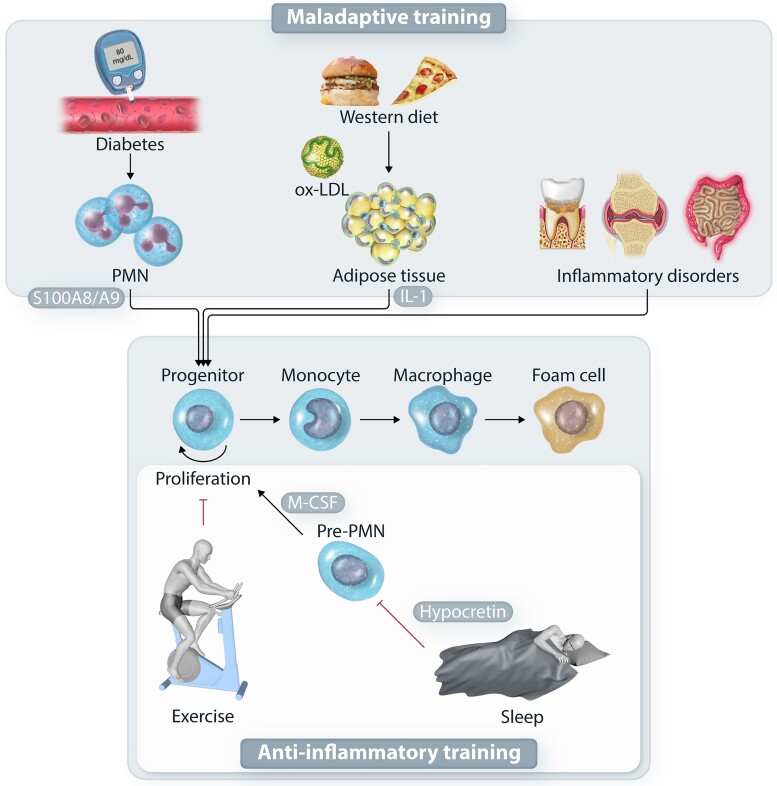Figure 1.
Rewiring of myelopoiesis in atherosclerotic disease. Systemic inflammatory disorders, as well as cardiometabolic risk factors, including diabetes, hyperglycemia and hypercholesterolemia drive maladaptive myelopoiesis, which results in the production of inflammatory monocytes and macrophages that can give rise to foam cells. Activated neutrophils in diabetes or adipose tissue macrophages in obesity and hypercholesterolemia drive the activation of hematopoietic progenitors in the bone marrow. On the other hand, healthy life style exerts an anti-inflammatory effect by blocking hematopoietic progenitor proliferation. In this regard, a healthy sleep, through hypothalamic hypocretin release and suppression of M-CSF production by neutrophil precursors, as well as exercise, suppress the maladaptive myelopoiesis in the context of atherosclerotic disease.

